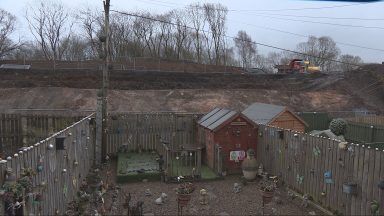Here, ITV News Science Correspondent Martin Stew speaks to citrus growers, the head of an air conditioning business and a climate scientist about how increasingly hotter summers are changing life in Britain.
Words by Health and Science Producer Rhiannon Hopley
You may have noticed that the weather in the UK is changing.
Parts of Britain are experiencing their fourth heatwave of the year, with temperatures breaching 30C in some places.
Hot days like this are becoming the norm in the UK.
The last three years have ranked among the warmest on record, with annual temperatures creeping up at a rate of 0.25C per decade since the 1980s.
Extremes are also becoming more usual – last year was one of the wettest on record, while spring 2025 was the driest in 132 years.
So how does the UK adapt to its new, warmer climate?
One of the biggest challenges is housing.
Homes in the UK were built for a much cooler climate, and therefore, most houses keep heat in.
With increasingly hot summers, this can lead to stifling indoor temperatures.
The UK is also experiencing more ‘tropical nights’ where temperatures do not fall below 20C, meaning the uncomfortable heat can last well into the early hours.
One solution to this is air conditioning – just 5% of homes in Britain have air conditioning, compared to a European average of 20% and 90% in the United States. But according to some companies, uptake is rising.
Lee Ramsay, who installs air conditioning in homes and businesses and has seen his customer base triple.
“I’ve been doing this for 30 years now.
“When I first started, we didn’t install anything in domestics, not at all. Now I’d say it’s probably making up about 40% of my business.
“So you know, it’s absolutely brilliant for us. But this is every year, especially in the last eight years, it is just increased so much.”

The climate is also affecting which crops we can grow.
In 2023, the UK surpassed the milestone of 1,000 wineries with the equivalent of 21.6 million bottles of wine being produced.
It continues to be a booming industry, as the warming climate is making the UK more suitable for grape-growing.
It is not just vineyards; some farmers are seeing conditions improve for other hotter-weather crops, including olives and citrus plants.
At the Citrus Centre in Sussex, they have been growing citrus plants for three decades, but usually they keep them indoors and under cover for most of the year.
As the climate heats up, though, they are spending more and more time outside.
“From Easter till now, we didn’t bring them in,” says owner Chris Dennis.
“Usually, it’s mid-May, we put plants outside hoping to keep them out, but ready to bring them in if it’s going to be frosty.
“But this year we’ve never put them out so early and not brought them in again.”
As the UK’s climate heats up, we will see hotter summers, milder winters, and increased extreme weather events like flooding or drought.
Our infrastructure is also under pressure.
The UK is currently building nine new reservoirs to help increase our water storage, particularly during drier years.
Meanwhile, Network Rail is currently working on making its network more resilient to climate change by building flood protection for areas of its tracks.
The change in our climate will mean real changes to how we live our lives.
Follow STV News on WhatsApp
Scan the QR code on your mobile device for all the latest news from around the country





























